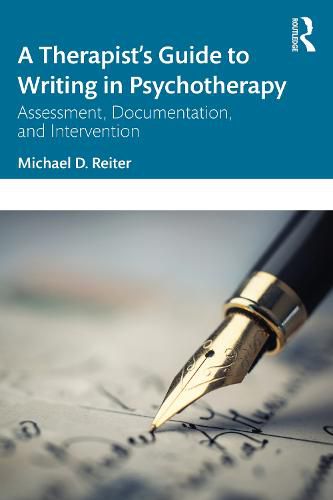Readings Newsletter
Become a Readings Member to make your shopping experience even easier.
Sign in or sign up for free!
You’re not far away from qualifying for FREE standard shipping within Australia
You’ve qualified for FREE standard shipping within Australia
The cart is loading…






This guide practically aids mental health professionals in understanding and improving their therapeutic and academic writing, demonstrating how the written word is an invaluable tool to document, assess, and promote change with those in and outside the therapy room.
Exploring the various ways writing occurs in psychotherapy professions, Michael D. Reiter comprehensively covers the range of the written word, from progress notes and assessment documentation, to journaling and therapeutic letters, as well as contacting larger systems such as report writing and grant applications. Chapters are formatted to include the purpose and function of a particular type of writing before providing multiple examples so therapists can apply this in their own practice. This book aims to help all therapists, regardless of academic training or therapeutic modality, to incorporate these ideas into their work.
This book is designed for mental health professionals in a variety of settings, including counselors, therapists, social workers, family therapists, and clinical psychologists. This book is useful for graduate students as well as those already in practice.
$9.00 standard shipping within Australia
FREE standard shipping within Australia for orders over $100.00
Express & International shipping calculated at checkout
This guide practically aids mental health professionals in understanding and improving their therapeutic and academic writing, demonstrating how the written word is an invaluable tool to document, assess, and promote change with those in and outside the therapy room.
Exploring the various ways writing occurs in psychotherapy professions, Michael D. Reiter comprehensively covers the range of the written word, from progress notes and assessment documentation, to journaling and therapeutic letters, as well as contacting larger systems such as report writing and grant applications. Chapters are formatted to include the purpose and function of a particular type of writing before providing multiple examples so therapists can apply this in their own practice. This book aims to help all therapists, regardless of academic training or therapeutic modality, to incorporate these ideas into their work.
This book is designed for mental health professionals in a variety of settings, including counselors, therapists, social workers, family therapists, and clinical psychologists. This book is useful for graduate students as well as those already in practice.